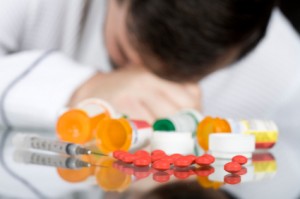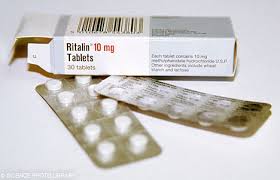15 Crack Addiction Symptoms

A crack abuser will often feel unable to quit.
- According to the DOJ, “Crack is nearly always smoked.” This is why, when the drug is abused for a long time, it causes respiratory damage, shortness of breath, coughing, “lung trauma and bleeding,” and other lung problems. These lung issues are symptoms of long-term crack abuse and addiction, and they are not usually caused to this capacity by cocaine abuse when the drug is snorted or injected.
- Someone who is addicted to crack will not be able to stop abusing it. They will feel unable to quit, even if they want to, and will either ignore the problems their abuse of the drug causes in their life, refuse to stop in spite of them, or be unable to stop even though they may want to.
- Individuals who are addicted to crack binge on the drug. According to CESAR, “Smoking crack cocaine brings an intense and immediate, but very short-lived high that lasts about fifteen minutes.” Someone who is addicted to the drug will likely smoke it constantly and in large amounts, trying to maintain their high. For this reason, “a person can become addicted after his or her first time trying crack cocaine.”
- Crack addiction causes users to develop tolerance to the drug more quickly than with cocaine. This means that users will be “needing more of the substance to achieve the desired effects.” When this begins to occur, the individual will often abuse more of the drug which will only cause them to need higher doses. This is a sign of crack addiction and also one of the issues with crack abuse that more quickly causes addiction to occur.
- Long-term crack abusers will often experience sexual dysfunction and other issues of this type. According to CESAR, these problems occur in both male and female abusers of the drug and can become extremely intense. While many addicts will experience lack of a sex drive and other issues, some may experience “reproductive damage and infertility” as well. Someone who is addicted to the drug would rather continue abusing it and live with these effects than to stop smoking crack.
- Crack addiction can lead to overdose as crack addicts will not want to or be able to stop abusing the drug, no matter what. In many cases, these individuals take too much and wind up overdosing. This can cause heart attack, stroke, and even death. If someone overdoses on cocaine, they are more than likely addicted already.
- Severe depression is a sign of long-term crack abuse and addiction. Someone who abuses crack for a long amount of time will often become extremely depressed, especially when they are not currently on the drug. After a while, even being high on crack will not make them feel euphoric or cause any of the feelings that they once experienced as part of a crack cocaine high. This inability to feel pleasure coupled with severe depression is a common symptom of crack addiction.
- According to the DOJ, “Crack cocaine smoking also can cause aggressive and paranoid behavior,” sometimes even more quickly and commonly than regular cocaine abuse. It is very likely for someone to experience paranoia as a result of long-term crack abuse and especially stimulant-induced psychosis. This psychosis is often a sign of addiction and includes hallucinations (both auditory and tactile), delusions, delirium, confusion, aggression, paranoia, and irritability in its symptoms.
- Extreme cravings for crack are indicative of addiction as well. As stated by the NLM, “People who stopped using cocaine can still feel strong cravings for the drug, sometimes even years later.” This occurs when someone becomes addicted to crack and then quits. Even with treatment, it can still be difficult for that individual when their triggers cause them to feel cravings for the drug.
- According to the NHTSA, another strong sign of crack addiction is the presence of burns, rashes and other skin problems occurring in different location’s on the individual’s body. “Burnt lips and fingers from crack pipes are frequently seen, as are rashes and skin reddening from scratching.” The scratching is caused by an itchiness that frequent crack abusers may experience and by hallucinations that many crack addicts have of bugs burrowing under their skin.
- Someone who is addicted to crack will exhibit an “increased frequency of risky behavior” (CESAR). This can cause them to experience many issues as a result of their drug abuse and they often become arrested because of this symptom.
- The NIDA states, “With repeated use, cocaine can cause long-term changes in the brain’s reward system.” This makes an individual who abuses crack less and less likely to find pleasure in anything but the drug. Those who are addicted to crack often stop caring about anything they once cared about: friends, family, work, hobbies. All that matters is their next fix.
- Malnourishment occurs in most individuals who are addicted to crack. The drug suppresses appetite and increases energy so many individuals go without sleep and food, sometimes for days. This can make an individual lose weight very quickly and become malnourished, even sick. It is extremely dangerous as well as very clearly a symptom of a person’s addiction to crack.
- Crack addicts become more sensitive to the drug’s anxiety-producing effect and experience more anxiety which increases the longer they abuse the drug and the higher their doses are (NIDA). Crack addicts become very high strung and anything may happen to set them off.
- Those become addicted to crack often keep taking the drug instead of seeking help. According to CESAR, “Users will often keep using crack cocaine simply to avoid the negative effects of withdrawal.” This is important to note because the effects of crack withdrawal (including depression, irritability, fatigue, and cravings) are very difficult for crack addicts to face, and many would rather abuse the drug just to stave these off, instead of seeking help instead. This occurs even when someone no longer gains pleasure from the drug itself.



